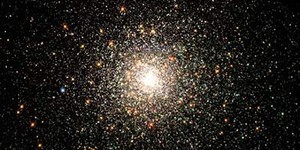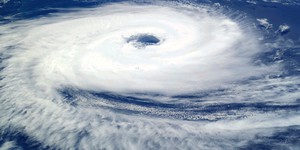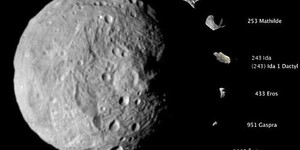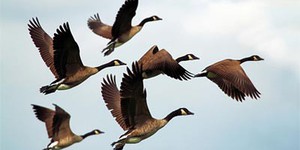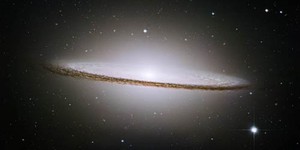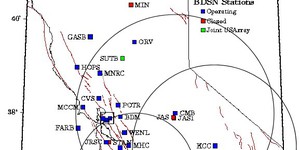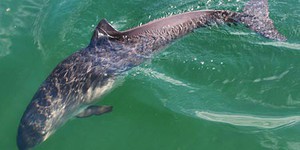Middle School, Big Data Science Projects (15 results)
"Big data" is exactly what it sounds like, a really large amount of data. Science has always been at the forefront of gathering, visualizing, and trying to make sense of massive data sets. For example, think of the more than 661,000 (and counting) asteroids that have been discovered in our solar system. Or ponder that 1.2 million species have been caught, identified, classified, and catalogued on Earth. And then there are the approximately 3 billion base pairs sequenced from the human genome. Even before there was a term for it, scientists have been amassing and analyzing big data.
|
Select a resource
Sort by
|
In a survey conducted from 2007 to 2010, the U.S. Centers for Disease Control and Prevention reported that about 49% of people in the United States had taken at least one prescription drug during the past month, and about 22% of people had taken three or more prescription drugs. People are prescribed drugs all the time, but prescriptions can be dangerous because people can have different responses to drugs. These responses largely have to do with genetic mutations. Why are some genetic…
Read more
Featured
Have you heard that garlic powder is supposed to inhibit the growth of bacteria? Which do you think would make a better disinfectant: a solution of garlic powder or a solution of bleach? This project shows you a straightforward way to compare the effectiveness of different disinfectants (or other antimicrobial agents), by measuring zones of inhibition on a culture plate.
Read more
Would it surprise you to learn that no one knows the exact age of the universe? Astronomers have estimates, and as they gather increasingly precise data and measurements, they continue to refine those estimates to come up with more accurate estimates. In this project, you can look at data about stars in dense groups called globular clusters and come up with your own estimate for the minimum age of the universe. How closely will your estimate match those of other astronomers?
Read more
New
Many visually impaired people use canes to detect obstacles at ground level. What about detecting an obstacle at face level, like a tree branch? What if you need to keep both your hands free and cannot hold a cane? Solve both problems at once with these obstacle-detecting glasses! The glasses use an ultrasonic sensor to measure distance and a buzzer to alert the user of nearby objects. You can customize the design to add or swap out features, like using a vibration motor instead of a buzzer.…
Read more
We've all heard that hurricanes draw their immense power from warm ocean waters. Of course, many factors contribute to the formation and growth of a hurricane, but can we expect to find that the warmer the water, the stronger the hurricane will be? This project shows you how to use online data archives to investigate this question.
Read more
You've heard of gold mining and coal mining, but think outside the box...or the planet...what about asteroid mining? Scientists, engineers, and business people believe asteroid mining is feasible, and they are in the beginning stages of long-term plans to mine asteroids for valuable resources during space missions. You don't want to miss out on all the fun; in this science project, you will come up with your own scientific plan for an asteroid mining company. We will help get you started by…
Read more
Extinct might be a word you associate with animals that lived long ago, like the dinosaurs, but did you know that over 18,000 species are classified as "threatened" (susceptible to extinction) today? Scientists involved in wildlife conservation have a tough job; they are in charge of determining what needs to be done to prevent a species from becoming extinct. Habitat, food supply, and impacts of local human populations are just a few of the factors these scientists take into account. It is a…
Read more
New
Many individuals who are blind or visually impaired use canes to navigate their surroundings, using their sense of touch to detect obstacles. What if you could create an electronic cane that emits an audible warning before coming into contact with an object? This project allows you to do just that by incorporating an ultrasonic distance sensor and a buzzer to alert the user of approaching obstacles. You can customize the cane by adding additional features or altering the design, such as using a…
Read more
Social media is all the buzz on the internet. What can we do with all the information generated by millions of people posting, tweeting, taking pictures, and chatting? How do companies convert it into profit? While you do not have the tools to analyze data from millions of social media posts by yourself, you will be able to analyze a scaled-down version. Follow the instructions in this project to try your hand at extracting data from a couple of social media sites and use it to create…
Read more
The Milky Way is the edgewise view of our home galaxy, a disk made up of billions of stars. The Sun resides on one of the spiral arms of the disk, 30,000 light-years from the thick hub of the galaxy. The actual center, with a black hole 3-4 million times the Sun's mass, is hidden by dust clouds in space. In this astronomy science fair project, you will use astronomical data to locate the center of this galaxy.
Read more
There is a lot of energy that can be harvested from moving water. Energy can be extracted from water rushing over a waterfall and from the regular patterns of the ocean's tides. The energy that propels waves forward in the oceans can also be extracted and used. But can wave energy power plants be built anywhere there is water? In this energy science fair project, you will use ocean buoy data and mathematics to determine which locations along the coasts of the United States can sustain a wave…
Read more
When an earthquake happens, how are scientists able to determine the original location of the quake? In this project, you'll use archived data from a network of seismometers to find out for yourself. You'll create your own seismograms from the comfort of your own computer with an easy-to-use webpage interface. Then you'll analyze your seismograms to determine the distance of the quake from each seismometer station. By mapping your analyzed data, you will be able to determine the location of the…
Read more
Have you ever wondered what life is like for different animals, and where it is that they roam? For example, how large is the area they live in, and why do they go to different locations? While we can set up cameras to watch animals that live on land, it can more challenging to see the lives of animals that live underwater, especially in the vast oceans. In this ocean science project, you will use satellite tracking data to learn about the activity patterns of harbor porpoises. How far do they…
Read more
|
Explore Our Science Videos
Make Candy Gears - STEM activity
Build A Solar Updraft Tower!
Storm Surge Activity - Protect Houses From Waves




